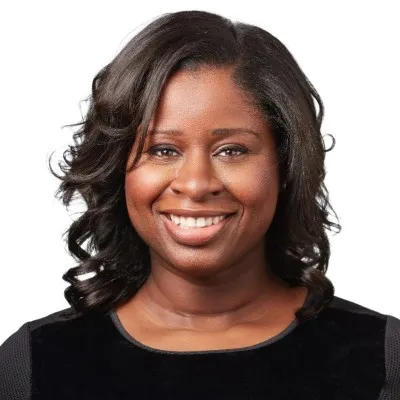How a Reading Rewards Program Transforms Company Culture


We recently had a chance to chat with Arnie Malham. Arnie spent many years building various companies and a common link between those exits and what he’s doing now is reading. In fact, a business that was created at one of his last companies that he carved out and kept after the exit, is BetterBookClub.com.
What Doesn’t Work
Arnie used to do something he thinks a lot of business owners will relate to: he’d read a book that really resonated, buy a couple of dozen copies, and pass them out to his team members. The intention was great. The results? Not so much.
A third of the employees would read the book, because they were told to read it.
A third of the employees would not read the book, because nobody tells them what to read!
A third of the employees would skim the book, splitting the difference between the readers and the boycotters.
This wasn’t a winning strategy.
Arnie went back to why he wanted his team members to read.
He wanted them to grow, because that’s what he felt like he was doing when he read.
So if reading equals growth, Arnie reasoned that he should encourage reading books in general rather than specific books. That reading, if consistent, would become a habit. That habit could make his employees not just better team members but better spouses, parents, siblings, and members of the community.
And that’s how Better Book Club was born, as an internal company initiative to get employees reading (and consequently, growing!).

Rewards and Community
It wasn’t enough to have people reading in private. Arnie wanted people to share what they were reading so as to encourage and push others to do the same. So it was important for everyone in the company to be able to see that reading activity; a rising tide lifts all boats.
Once employees shared a book they had read, they would submit a report and, once it was approved, they would get a small addition to their paycheck. These days, with the company operating as a service that any business can use, everything is automated using gift cards that are delivered via email.
Arnie and his team have also picked up on the aspect of gamification, allowing people to earn badges and rewarding people within the platform for following other people and reading more. A notification might read, “Congratulations Omar, you’re the seventh person in the company to read The Thank You Economy. Keep going!”
Finally, all this activity is streamed into Slack or Teams so that there’s additional engagement and an opportunity for others to jump on the bandwagon or share more.
What Does Work
Arnie mentioned that a corollary to his old habit of buying the same book for everyone was droning on about books he was reading or had read recently. But just like the books he gave out, that wasn’t a way to get engagement. And leaders don’t need to hear the sound of their own voices. They need to hear the voices of others to better engage with them.
So Arnie stopped leading by talking about the books that he was reading and began asking others what they were reading. This gave him insight into how others thought and a chance to suggest books to complement what they were reading. But it also gave him suggestions for books he could read!
Arnie pointed out that at some top companies in the world, it’s unlikely that their teams are reading, on average, two books per year, so if you’re able to get your team members to read just one book a quarter, you’re a world-class company by that metric.
And it’s not a vanity metric, either. Arnie says that half a dozen books a year and one good conference are far better for personal and professional growth than a whole slew of professional events. That’s become even clearer in a post-pandemic world when companies are evaluating and auditing travel and educational expenses.
Culture Reflects Leadership
It was at a conference that Arnie heard a phrase that became transformational for him in his leadership journey: culture reflects leadership.
He admits he was only half-listening at the time but that phrase hit him so hard that he stopped everything else and pondered it.
The culture he had at his business was his fault. Not his clients’, not his people’s, it was his responsibility.
Every company has the culture it deserves, because the culture reflects the leadership.
If leadership can’t change, neither can the culture.
But leadership can change, particularly if it’s humble enough to grow through something as simple as reading.
It was this realization, along with mentorship from EO, that allowed Arnie to make the changes that would become transformational in his companies.
Give Programs Time
These changes didn’t happen overnight. Arnie points out that every program needs time to be successful. That doesn’t mean days or weeks, but more like months and sometimes years.
This doesn’t mean that every program will work, but it will definitely NOT work if you don’t give it enough time to take root and grow.
There needs to be a person overseeing that growth — a champion — and that person can’t be you all the time. You need to find leaders in your organization to be champions of initiatives and programs so that good ideas don’t just wither for lack of advocacy.
That champion needs to be given a checklist to accomplish certain things to properly grow and advocate for a program. Champions can’t be left to just fend for themselves.
Even if only one in three programs succeeds — due to a champion and proper time to grow — that’s still a success.
Packaged Lessons
It wouldn’t be a helpful article about the power of books if we didn’t share one at the end, right? Thankfully, Arnie’s got us covered there. If you want the “director’s cut” of the journey Arnie shared with us, pick up his book Worth Doing Wrong.
In the book, Arnie offers executable strategies and real-world tactics to help you create a culture that you and your team members will love.
And the title? He said he’s done it wrong often enough to finally get it right. And that humility makes the message resonate even more.
Check Out the Full Episode
You can learn more from our discussion with Arnie by listening to the podcast on Apple or Spotify. Arnie discusses his own leadership journey and the role that books played in helping him to develop. Part of what drives him is getting to know others through what they think and those conversations are often driven by asking others about the books that they’ve recently read.
Looking to build your own BragWorthy Culture? Fringe can help. Fringe is the number one lifestyle benefits platform. Give your people the power of choice and save a ton of administrative headaches by consolidating existing vendors and programs into a simple, automated platform. Talk to our team to get started.

.jpeg)
